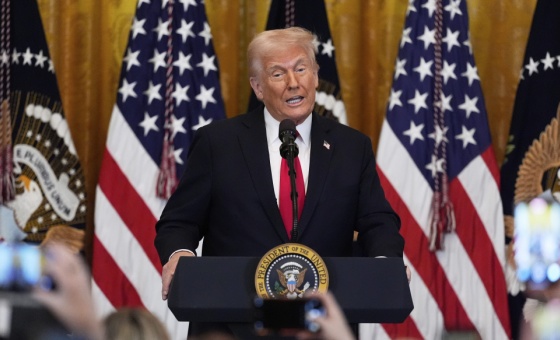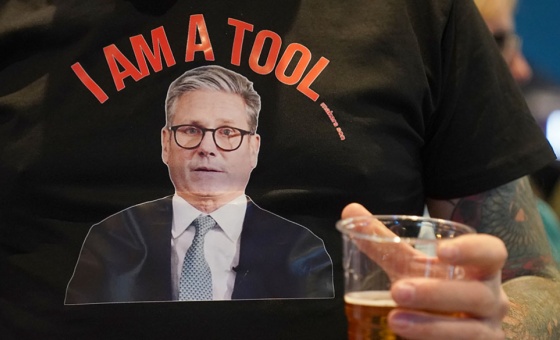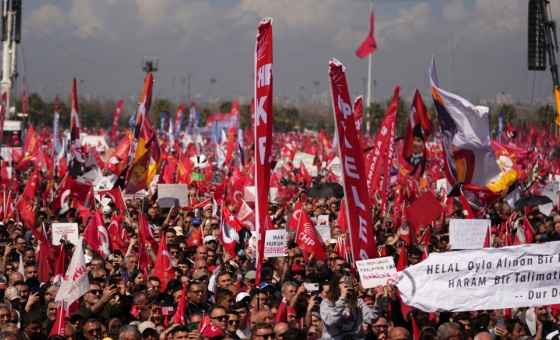This is the last article you can read this month
You can read more article this month
You can read more articles this month
Sorry your limit is up for this month
Reset on:
Please help support the Morning Star by subscribing here
EUROPEAN Union chief Ursula von der Leyen claimed on Monday that a free trade deal with Latin America’s Mercosur bloc could be struck by the end of the year.
But Brazilian President Luiz Inacio “Lula” da Silva remained more cautious, insisting he would stand by exemptions allowing Brazil to plan its economic and industrial development.
Ms von der Leyen met President Lula on Monday at the start of a tour of the four Mercosur countries — Brazil, Argentina, Paraguay and Uruguay — in a bid to increase trade.
Top of the agenda is reviving a stalled trade deal negotiated in 2019. New EU demands were sent to Mercosur countries in March, covering concerns raised by France over importing goods from deforested areas, ostensibly on environmental grounds but also to limit food imports that could undercut French farmers.
Mercosur is due to issue a counter-proposal by the end of the month. Lula said EU objectives including the right for European companies to bid for public contracts on equal terms with local counterparts were too sweeping.
“Public procurement is an instrument of industrial policy,” the socialist president said at a meeting with industrial leaders last month.
“Just as France fervently defends its agricultural products, we are going to defend industry.”
He specified health, agriculture and defence as other fields where his government opposed competitive tendering.
Lula stressed the point to Ms von der Leyen on Monday, rebuking the EU for the “distrust and sanctions” he said were evident in its negotiating stance.
While he expressed hopes that a mutually beneficial agreement could be found, Brazilian Foreign Ministry officials have been briefing that some in the administration are arguing for the EU’s March letter to be used as an excuse not to ratify the deal.
Lula has sought to revive “South-South co-operation” with other developing countries, criticising trade deals designed to benefit the US and EU at their expense and promoting the Brics bloc of Brazil, Russia, India, China and South Africa.
Earlier this year he rejected EU pressure to send arms to Ukraine in line with Nato policy on the European war, declaring that “developed nations, particularly the US and EU, should not have rushed to join the conflict so quickly” because this made peace negotiations harder.
 Ben Chacko
Ben Chacko










